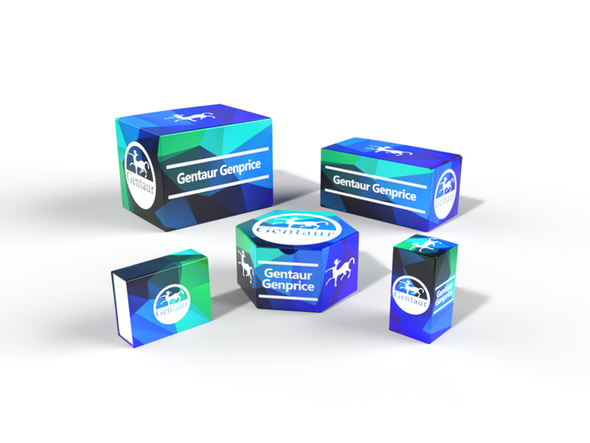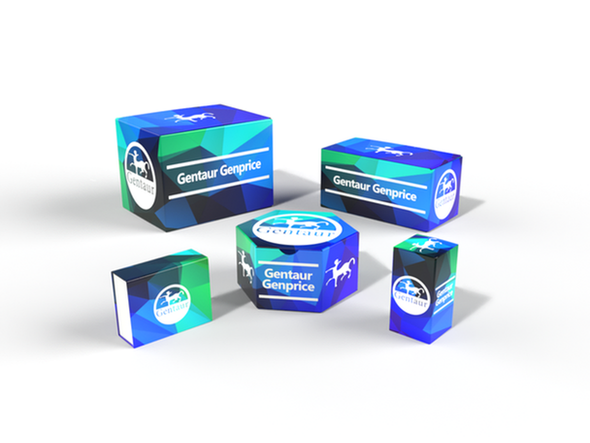740
Rat Mitochondrial uncoupling protein 2 (UCP2) ELISA Kit | AE12302RA
- SKU:
- 740-AE12302RA
- Availability:
- Usually ships in 5 working days
Description
Rat Mitochondrial uncoupling protein 2 (UCP2) ELISA Kit | AE12302RA | Gentaur UK, US & Europe Distribution
Species Reactivity: Rat (Rattus norvegicus)
Abbreviation: UCP2
Alternative Name: BMIQ4; SLC25A8; UCPH; uncoupling protein 2
Application: ELISA
Range: 0.156-10 ng/mL
Sensitivity: 0.056 ng/mL
Intra-Assay: ≤6.4%
Inter-Assay: ≤9.2%
Recovery: 1, 01
Sample Type: Serum, Plasma, Other biological fluids
Detection Method: Sandwich
Analysis Method : Quantitive
Test Principale: This assay employs a two-site sandwich ELISA to quantitate UCP2 in samples. An antibody specific for UCP2 has been pre-coated onto a microplate. Standards and samples are pipetted into the wells and anyUCP2 present is bound by the immobilized antibody. After removing any unbound substances, a biotin-conjugated antibody specific for UCP2 is added to the wells. After washing, Streptavidin conjugated Horseradish Peroxidase (HRP) is added to the wells. Following a wash to remove any unbound avidin-enzyme reagent, a substrate solution is added to the wells and color develops in proportion to the amount of UCP2 bound in the initial step. The color development is stopped and the intensity of the color is measured.
Product Overview: UCP3 has tissue-specific transcription initiation with other transcription initiation sites upstream of SM-1. Chromosomal order is 5'-UCP3-UCP2-3'. Two splice variants have been found for this gene.Mitochondrial uncoupling proteins (UCP) are members of the larger family of mitochondrial anion carrier proteins (MACP) . UCPs separate oxidative phosphorylation from ATP synthesis with energy dissipated as heat, also referred to as the mitochondrial proton leak. UCPs facilitate the transfer of anions from the inner to the outer mitochondrial membrane and the return transfer of protons from the outer to the inner mitochondrial membrane. They also reduce the mitochondrial membrane potential in mammalian cells. Tissue specificity occurs for the different UCPs and the exact methods of how UCPs transfer H+/OH- are not known.
Stability: The stability of ELISA kit is determined by the loss rate of activity. The loss rate of this kit is less than 5% within the expiration date under appropriate storage condition. The loss rate was determined by accelerated thermal degradation test. Keep the kit at 37°C for 4 and 7 days, and compare O.D.values of the kit kept at 37°C with that of at recommended temperature. (referring from China Biological Products Standard, which was calculated by the Arrhenius equation. For ELISA kit, 4 days storage at 37°C can be considered as 6 months at 2 - 8°C, which means 7 days at 37°C equaling 12 months at 2 - 8°C) .










